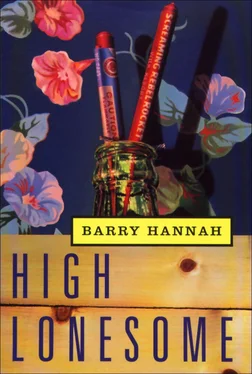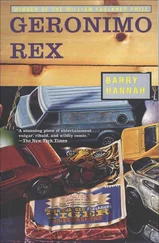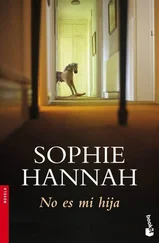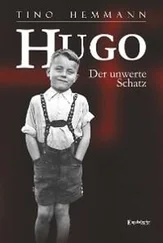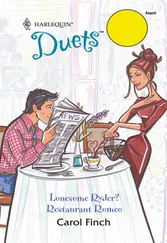About three in the morning, into the last of his cheap wine, he heard a car in his drive and some bells at his door. It was Angel B., the punk crippled girl. She settled inside with her crutches and her bells on what was left of a wicker armchair.
“I know I can’t write, but you are a great man. I can get your job back for you. I know some things on the person fired you, some of them taped. This would destroy her.”
It seemed a plausible and satisfactory thing to Smith.
“I might not can write but I want a piece of a great man to remember. Would you dim the lights?”
He recalled the revulsion, but with an enormous pity overcoming it. In his final despair, the last anguished thrust and hold, he tried to mean actual love. He wanted to be a heavy soft trophy to her. The bells jangled faintly every now and then before he accomplished the end of his dream. Smith stroked Angel’s mohawk, grown high and soft. Then she was businesslike getting her clothes and crutches back together. She was leaving immediately. Smith suggested they at least have a wine together.
“No. I’m drinking with Morris, the Reverend. He’s out there waiting. We’ve got a tough morning tomorrow. We’re going down to the station and I’m putting rape charges on him.”
“He’s driving you? What, pleading guilty?”
“No, innocent. We’re still close. But I know what I know.”
She waddled out to the old Mustang. Morris waited in it like a pet. His dense glasses were full of moonlight.
A week later Drum drove him to the airport.
“I think that was it, Drummer. Pit bottom. And I can still taste her.” Smith was trying to get a long march out of sips of Southern Comfort.
“It probably wasn’t, sport. You get to go to California, stomping grounds of all my failures. Be patient, Paul. Nobody gets well quick, not with what you’ve got.”
He remembered Drum taking his luggage. The man wore a shapeless blue-green jumpsuit with plastic sandals on his feet. The porter was a diplomat, compared.
Smith was not a success as a screenwriter. After he destroyed two typewriters, he spent a month in a hospital, where they talked about the same little child inside that Drum had often mentioned. Smith was befriended by a kind genius of a director, one of his heroes. The man gave him money that put him right with his child support, but Smith was unable to compose anything worthy for him, for all his effort. The bright healthy weather and opulence mocked him. He could not get past stupid good feelings. His work was entirely made up and false. There was no saving it by pure language. He could not work sober and was greatly frightened by this fact. He was failing right along with the old Drummer. He had to take another teaching job in the Midwest. It was a prestigious place, but Smith felt dumb and small.
He kept up with Drum through the years left. The Drummer was making a lot of money as a carpenter in house construction. He wrote to Smith that he could have, if he were not a Christian, any number of miserable lonely housewives. The Cobra, his quarrelsome mother, died. He moved out to a big mobile home on the outskirts of town, near Cottondale. He attended the high school graduation of Smith’s son. He took and sent over a photograph of the boy in his gown receiving his diploma. He gave Smith’s children presents at Christmas. Many times he took them fishing.
Three years ago, Smith had bitten the bullet and visited Drum in his trailer. Drum had had a heart attack six months previous. He told Smith he could hold in pain, but this was too much. He drove himself to the hospital. Uninsured, he paid out a ghastly amount. The trailer was all he could afford now. A preacher had become his landlord. Smith offered to lend him some money. Drum refused.
“Oh no. We don’t want money to get into this, baby. Somehow things go rotten with money between friends. Believe me. This thing we have is too beautiful.”
The streets of the town were a long heart attack themselves to Smith. Everything felt like sorrow and confusion, and tasted like Southern Comfort with cherry juice poured in — a revulsion of the tongue that had never left him. He felt the town itself was mean and fatal, each street a channel of stunned horror. He feared for Drum’s health. How could he carry on here?
He met Drum’s woman, a handsome lady of Greek descent. Drum was wild for her. She stayed over the night in their larger bedroom at the other end of the trailer. When she left, Smith told Drum he was very happy for him.
“I worried you’d turned queer,” Smith kidded him.
“You ought to hear her moan, boy. I’m bringing happiness to that one.”
Now Smith saddened, and his teeth cut into his tight underlip. Drum all those years without a woman, the uncle to everybody, in the background, cheering them on; urging them on to the great accidents of art and love. Drum the Drummer. Keeping the panic out, keeping the big heart in. He had convinced Smith he was worth something. He had convinced others that Smith was rare. Many days in California Smith had nothing else to take him through the blank stupid days.
“I’m living on borrowed time, man. Nothing is unimportant. Every minute is a jewel. Every stroke of pussy, every nail in the board.”
He had lived that way every minute Smith had known him. That seemed very clear now. He looked at his friend and a shock passed through him. Drum was old, with wisps of gray hair combed back. He was pale, his eyes wet. The strong arms gestured and the mouth moved, but Smith heard nothing. Then the voice, like a whisper almost, came back. What was he saying? The vision had overcome everything.
It occurred to Smith later that success did not interest Drum. When Smith told him of some publishing luck and gave him a book, the man just nodded. You could see the boredom, almost distaste, freeze his eyes. He was not jealous. It simply didn’t matter.
Near the end he had broken off relations with the Greek woman. His oldest son had come back from Germany to live with him, but he could not live with anybody. He asked him to leave the trailer.
And then the poem when they found him:
Here I sit all brokenhearted.
Paid a nickel to shit,
And only farted.
A common piece of trash off a bathroom wall, a punkish anonymity.
How could he? Why not even a try at high personal salute? The way he had believed in work, the big heart, the war.
Smith was angry a long time that Drum had left nothing else.
The waiting on borrowed time, the misery of his heart yearning like a bomb, the bad starving blood going through his veins. Smith could understand the suicide. Who was good for endless lingering, a permanent bad seat and bad magazine at the doctor’s office? And with heaven looming right over there, right next to you salvation and peace, what Christian could hold out any longer?
Yes, but the poem.
So common, so punk, so lost in democracy, like an old condom.
The wretched clothes, beneath and beyond style, the style of everybody waiting intolerable lengths of time in an emergency room. Clothes the head of Sarge belonged on, the smile of ruin on his lips. Here, sir. All accounted for.
THEY WERE COMING TOWARD ME — THIS WAS 1949—ON THEIR horses with their guns, dressed in leather and wool and canvas and with different sporting hats, my father and his brothers, led by my uncle on these his hunting lands, several hundred acres called Tanglewood still dense in hardwoods but also opened by many meadows, as a young boy would imagine from cavalry movies. The meadows were thick with fall cornstalks, and the quail and doves were plenty. So were the squirrels in the woods where I had been let off to hunt at a stand with a Thermos of chocolate and my 28-gauge double. At nine years old I felt very worthy for a change, even though I was a bad hunter.
Читать дальше
